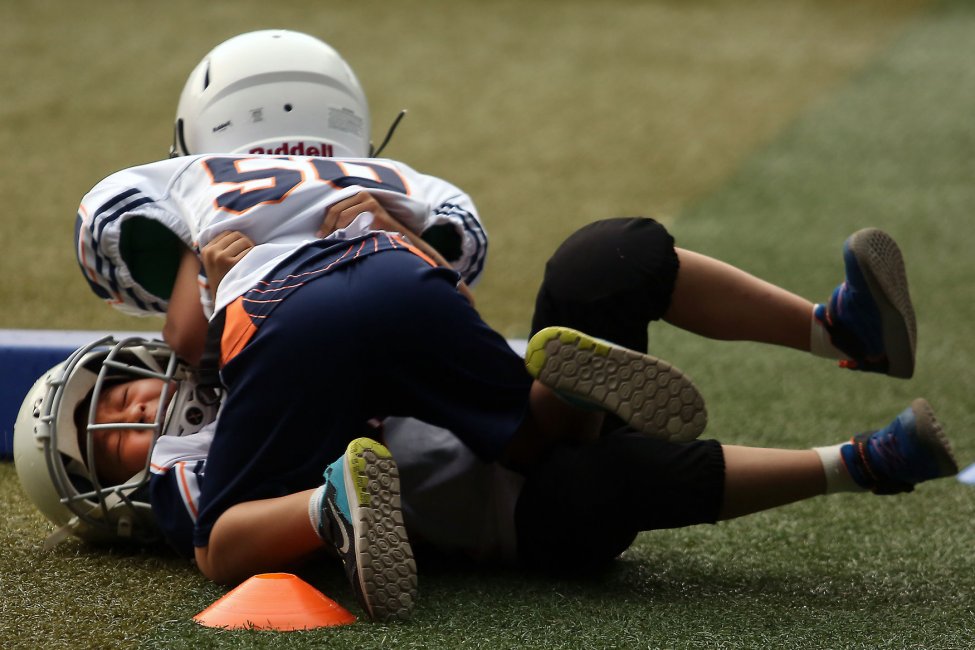Dec. 30 (UPI) — Repetitive head impacts in youth tackle football among children ages 9 to 12 are not associated with cognitive or behavioral problems, a study published Thursday by JAMA Network Open found.
Among 70 youth football players tracked over four seasons, scores on various tests for intelligence, thinking and memory remained largely unchanged, even though participants collectively sustained up to 6,000 head impacts per year, the data showed.
Results on assessments for behavior, including those designed to identify symptoms of attention-deficit hyperactivity disorder, or ADHD, also were stable throughout the four-year study period, the researchers said.
Those whose scores did change over the course of the study had symptoms of ADHD and behavioral disorders before participating in youth football, according to the researchers.
“These findings shouldn’t be used to withhold kids with these medical conditions from playing contact sports,” study co-author Dr. Sean Rose said in a press release.
“More research is needed to determine if there is a subset of kids who are more at risk from playing contact sports,” said Rose, who is co-director of the Complex Concussion Clinic at Nationwide Children’s Hospital in Columbus, Ohio.
Previous studies have linked head injuries in youth sports, including American football, with brain changes that may affect cognitive function and behavior.
However, others have found that participation in youth sports does not necessarily increase a child’s risk for brain injury.
For this study, Rose and his colleagues followed 70 male players ages 9 to 12 from four football teams during competitive seasons between 2016 and 2020.
Of these, 18 players completed all four years of the study, the researchers said.
The researchers measured sub-concussive head impacts using sensors placed on helmets during practices and games.
They then calculated a cumulative measure of head impacts per season and evaluated players’ cognitive function and behavior before and after each football season using 10 commonly used tests.
There were no consistent associations between cumulative head impacts and cognitive and behavioral changes and no effects became more prominent over the four years of the study, the data showed.
However, at multiple time points during the study, other medical diagnoses, including ADHD, anxiety and depression, were linked with worse cognitive or behavioral scores, the researchers said.
“The current evidence is very conflicting,” Rose said of studies assessing the relationship between head trauma and brain injuries in youth sports.
“Many factors can affect cognition and behavior, making it difficult to tease apart the effects of head impacts during sports and other confounding factors, such as pre-participation cognitive ability,” he said.
